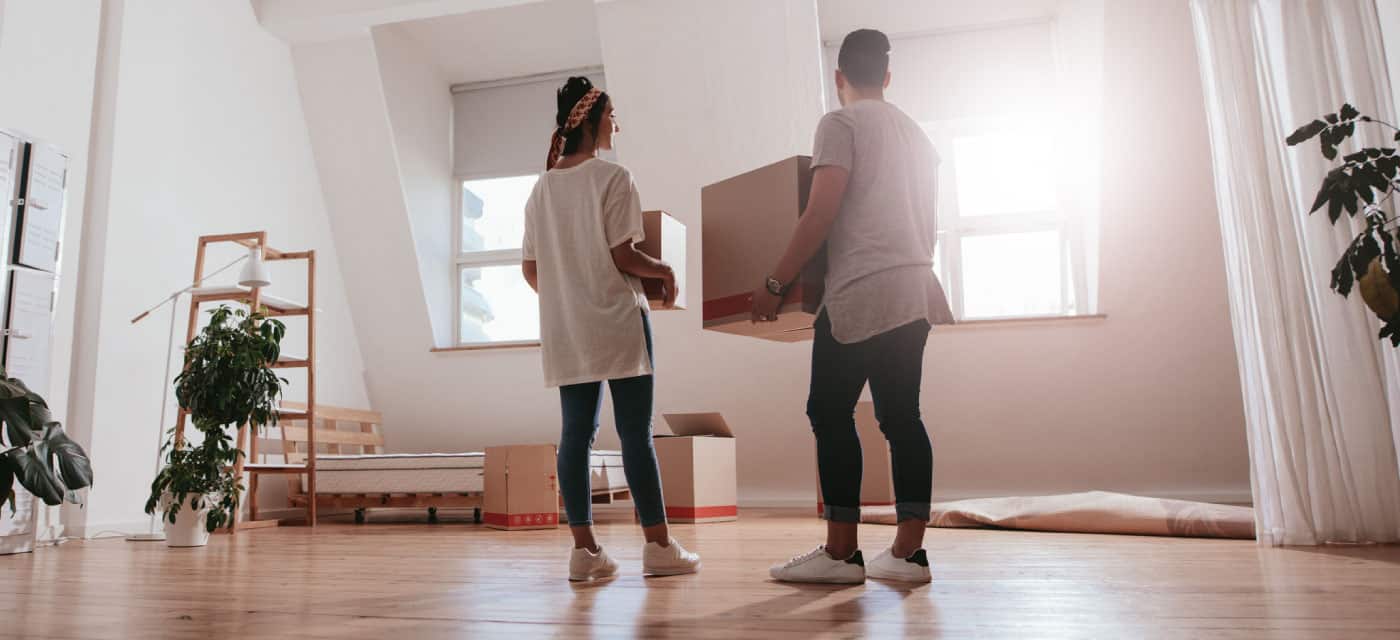4 Questions To Ask Yourself Before Signing A Mortgage
On the fence about buying a home? Ask yourself these questions to help decide if your ready for the next step.

Asking the right questions is an important part of every financial decision you make, and homeownership is no exception. If you’ve been thinking about buying a home, preliminary research will turn up a long checklist of questions for you to ask at every step of the process. There are questions for your financial institution, mortgage broker, and real estate agent. But what about the questions you should be asking yourself?
Owning a home is likely the largest financial commitment you’ll make in your life, and it’s easy to get caught up in details pertaining to debt-to-income ratios, the real estate market, current interest rates, and amortization schedules. But financials are only a part of the picture. In order to make a truly smart decision, you need to acknowledge and accommodate some personal factors along with the financial ones.
Asking yourself the following four questions will help you determine whether or not you’re ready to own a home.
Questions To Ask
Why Do You Want To Own A Home?
Seriously, why is owning a home important to you? (Don’t answer with what you think you should answer; be honest with yourself.) Are you looking to build equity? Does it just seem like something a “successful adult” needs to do? Do you see it as an investment? Do you think renting is somehow inferior to owning? Are you just fed up with your landlord? Do you see it as a symbol of your freedom and independence? Do you have a Pinterest board of home renovation ideas you’re dying to try? Do you think it’s something that all (insert age here)-year-olds should do?
There’s no “right” answer to this question (even though some reasons might be more frivolous than others).
By simply observing what surfaces when you ask yourself these questions, you’ll get some insight into why you’re contemplating buying a home in the first place. Are your motivations fueled by practicality or insecurity? Is it something you want, or simply something that everyone else seems to be doing? With these answers, you’ll be able to tell if you’re in it for the right reasons.
Are You Okay With Staying Put?
To make the most out of buying a home, you need to be in it for the long haul (which, in this case, usually means at least 5-7 years). There’s a reason why short-term home ownership isn’t a thing outside of those real estate flipping TV shows – it’s a great way to lose a lot of money.
Your home, like any investment, needs time in order for its value to grow. By selling your home after only a couple of years, you’re at the mercy of real estate market swings and your home may not have increased in value enough to break even – especially when you factor in closing costs and other additional expenses that go along with buying a home.
If the thought of staying in one place for more than one year makes you feel panicky, then it might not be the right time for you to buy.


First-Time Homebuyer
Buying a home is a big deal, especially the first time around. Use these recommendations to prepare your finances, move through the application process, and know what to expect at closing and beyond.
Are You Happy?
Stability is key when it comes to buying a home, and so anything that threatens that stability could also potentially cause some major headaches once you’ve signed the mortgage papers. Do you love what you do for a living? Do you have job security? Do you enjoy living in your neck of the woods? Is your personal life stable?
You don’t want to be in a situation where you purchase a home and then find yourself faced with the need to change things up. A career change, the start or end of a relationship, or a sudden onset of wanderlust could all interrupt your plans to stay put and build equity. Of course, life can be unexpected even when you’re happy – but generally speaking, if you’re pleased with where you’re at, dramatic changes won’t be looming around the corner.
Is Your Savings Account Up For The Challenge?
Have you done your homework and figured out how much home you can afford, based not only on the monthly mortgage payments, but also on all of the other expenses, such as property taxes, insurance, homeowners association fees, and utilities, to name just a few?
Regular monthly expenses aside, homeownership can serve up all sorts of expensive surprises, and you’ll want to make sure your savings account is up for the challenge. Save up for inevitable home repairs and maintenance – the financial responsibility of maintaining a household (appliances, heating, plumbing and landscaping) can take new homeowners by surprise.
You’ll also want to beef up your emergency fund so that you have some flexibility and can continue paying your mortgage if you suddenly find yourself with health or job troubles. If your savings are healthy, you’ll also want to consider budgeting for moving expenses, furniture, and home upgrades before making the move.
Summary
On the surface, homeownership can seem like a smart and appealing option, especially if your mortgage payments work out to be lower than what you would be paying to rent. However, rushing into a mortgage can set you up for a ton of stress (financial and otherwise). Before you buy, check in with yourself to make sure that you’re well prepared, that the timing is right and that you’re doing it for the right reasons.


Homeownership Coaching
The homebuying process can be complex. Whether you’re just considering it, saving for a down payment, applying for a mortgage, or preparing for a closing, a counselor can guide you through all aspects of the journey.
Related Articles
How Does Paying Back A HELOC Work?

Understand HELOC repayment, what happens after payoff, and key Texas regulations before borrowing against your home’s equity.
How Much Equity Do You Need To Refinance?

Learn how much equity is needed to refinance, explore loan options, and familiarize yourself with key requirements to make the best mortgage refinancing decision.
How To Use A Home Equity Line Of Credit (HELOC)

Learn how a HELOC works, what you can use it for, and what to consider before borrowing against your home’s equity.
